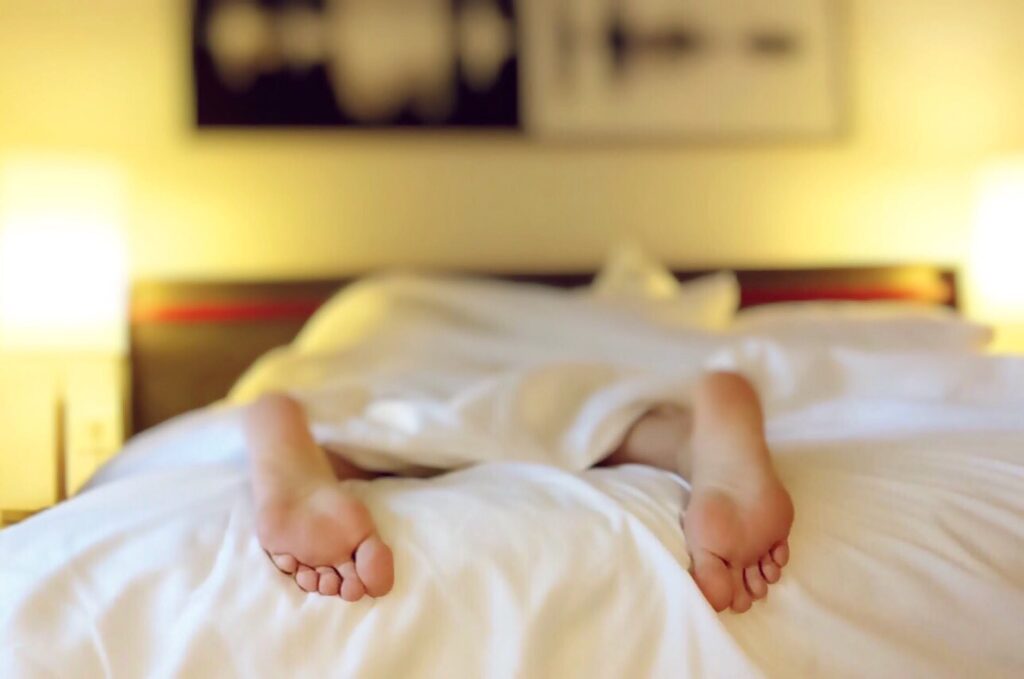The Basics: Sleep

Besides training and nutrition, the third (and often overlooked) component of a healthy lifestyle is sleep. You train in the gym to stimulate your muscles, eat to feed them, but the real muscle building takes place in your bed while you sleep. Your body needs time to recover and repair all the damage that has been done during the day.
If you choose an active lifestyle, you will continuously push your body to its limits. No progress can be made without increasing the load your body is exposed to. In turn, you have to recover from every session, so that you can grow and endure even more next time.
The trigger for your muscle growth is progressive resistance training, the fuel is your protein-rich diet, and all your efforts pay off, and translate into an improved body composition during a good night’s rest.
What happens when you sleep?
When you go to bed, your muscles relax, your breathing and heart rate slow down, and you lose consciousness. During your sleep, your brain processes memories, and your body releases hormones, initiates protein synthesis and starts repairing and growing muscle tissues.
If you don’t get enough sleep, your body doesn’t have time to finish these recovery and building processes, so you are wasting all that effort you put into your diet and your workout at the gym.
How much sleep do you need?
The scientific consensus is that an adult needs 7 to 9 hours of sleep per day. The older you get, the less sleep you need, but 7 hours should be the very minimum at any age. It’s also worth noting that people who do physically demanding activities need more sleep than inactive people. To support an active lifestyle, your goal should be between eight and nine hours per day.
Bedtime routine
As with everything else, consistency is crucial when it comes to your sleeping hygiene. You have to choose a time when you go to sleep and stick to it every day. In the same fashion, your alarm should go off at the same time each morning.
Prepare for bed by winding down. Relax, avoid looking at screens, shut down your computer, and turn off your phone. Dim the lights and put on some music if you like.
Make sure that you don’t eat anything in the last hour before bed. It’s also important that you stop having caffeine (coffee, tea, or energy drinks) at least 6 hours before your scheduled bedtime.
Having a consistent routine will ensure that the time you spend in bed brings you the best possible benefits.








